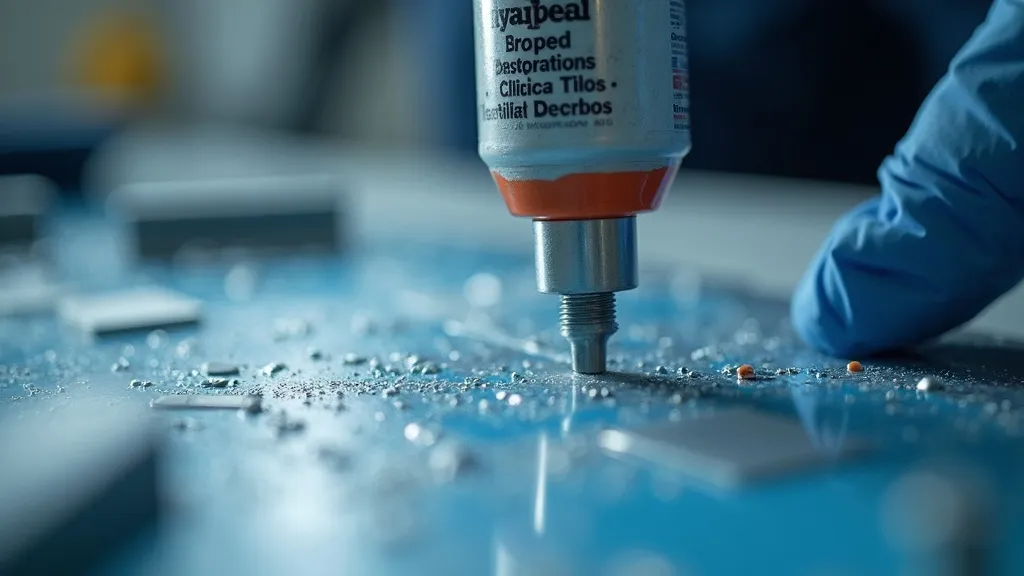Polysulfide adhesive is a highly versatile and durable sealant used in various industrial applications due to its exceptional resistance to weathering, chemicals, and temperature fluctuations. This article explores the properties, uses, and benefits of polysulfide adhesives, offering insight into their crucial role in industries such as construction, automotive, and aerospace.

Polysulfide adhesive is a specialty sealant known for its flexibility and resilience, making it a preferred choice in demanding industrial environments. Its chemical structure, characterized by long polymer chains with sulfur linkages, allows it to maintain performance under extreme conditions, including exposure to harsh chemicals and significant temperature variations. This sealant is distinguished by its ability to form tight, impermeable seals, which is essential for applications where safety and durability are paramount. The polysulfide adhesive can withstand mechanical stresses, environmental impacts, and chemical attacks, making it a versatile option in various fields.
The primary advantage of polysulfide adhesive lies in its robust resistance to environmental factors. It stands up well against UV exposure, saltwater, and a variety of oils and fuels, making it particularly useful in marine and aerospace industries. Moreover, its elasticity ensures that it can absorb mechanical stresses without losing adhesion, providing good durability and reliability. In addition to these properties, polysulfide adhesives are known for their excellent adhesion to a wide range of substrates, including metals, plastics, glass, and composites. This versatility enhances their applicability across different sectors.
Furthermore, polysulfide adhesives are often formulated to be non-toxic and environmentally friendly, which is a significant consideration in today’s industry, where sustainability is key. This makes them suitable for applications in food processing and medical industries, where safety is critical.
Polysulfide adhesives are utilized in a myriad of industries, each taking advantage of their unique properties:
| Adhesive Type | Key Characteristics | Ideal Applications |
|---|---|---|
| Polysulfide | Elastic, chemical resistant, durable | Construction, automotive, aerospace, marine, electronics |
| Polyurethane | Flexible, moderately resistant to chemicals | Flooring, roofing, automotive interiors, outdoor furniture |
| Silicone | Stable, excellent heat resistance | Electrical, plumbing, glazing, kitchen and bath applications |
| Epoxy | Strong, rigid, excellent adhesive properties | Heavy-duty bonding, repair applications, coatings |
Q: What makes polysulfide adhesive unique compared to other adhesives?
A: Its unique combination of flexibility, chemical resistance, and durability makes it ideal for environments where other adhesives might fail. Unlike some adhesives that become brittle over time, polysulfide maintains its elasticity, ensuring long-term performance in challenging conditions.
Q: Can polysulfide adhesive be used in extreme temperatures?
A: Yes, it performs exceptionally well in both high and low temperatures, maintaining its seal integrity. Polysulfide adhesives can typically withstand temperatures ranging from -40°F to 250°F (-40°C to 121°C) without losing their functionality, making them suitable for a wide range of applications.
Q: Is it suitable for underwater applications?
A: Absolutely, its resistance to saltwater and impermeability make it perfect for marine uses. Polysulfide adhesives are often used in applications such as seam sealing in boats and waterproofing in marine environments, ensuring reliability in submerged conditions.
Q: How does the curing process of polysulfide adhesives work?
A: Polysulfide adhesives cure through a chemical reaction between the adhesive components, often requiring a hardener to initiate the reaction. The curing process can take several hours to days, depending on environmental conditions such as temperature and humidity. Once cured, the adhesive forms a robust, flexible bond that can withstand various stresses.
Q: Are there any specific surface preparation steps required before applying polysulfide adhesive?
A: Yes, proper surface preparation is crucial for achieving optimal adhesion. Surfaces should be clean, dry, and free of contaminants such as oil, dust, or old adhesives. Depending on the materials being bonded, mechanical roughening or priming might be necessary to enhance the adhesive's performance.
As industries become more conscious of their environmental impact, the role of polysulfide adhesives is evolving. Many manufacturers are now producing polysulfide adhesives that are low in volatile organic compounds (VOCs), reducing harmful emissions during application and curing. This shift towards more eco-friendly formulations aligns with global sustainability efforts and regulatory requirements aimed at minimizing environmental pollution.
Moreover, polysulfide adhesives are recognized for their longevity, which contributes to sustainability by reducing the need for frequent repairs and replacements. By providing long-lasting solutions that withstand harsh conditions, these adhesives help decrease material waste and resource consumption in various industries.
As technology advances, the future of polysulfide adhesives looks promising. Ongoing research is focused on enhancing their properties, such as improving their bonding capabilities with new composites, enhancing their thermal stability, and developing formulations that cure faster while maintaining their performance characteristics. Innovations in additives and fillers can also improve the performance of polysulfide adhesives, making them even more versatile for specialized applications.
Additionally, the integration of smart technology into adhesive systems is an emerging trend. This includes the development of adhesives that can adapt to environmental changes or monitor structural integrity in real-time. Such advancements could revolutionize industries like construction and aerospace, where safety and reliability are paramount.
Polysulfide adhesive continues to be an indispensable component across various industries, providing solutions where flexibility and environmental resistance are crucial. Understanding its properties and applications allows industry professionals to make informed decisions, ensuring the longevity and safety of their projects. As the market for advanced adhesives grows, polysulfide adhesives will likely play a central role in developing innovative solutions, meeting the evolving needs of modern industries while prioritizing sustainability and performance.
Explore the Tranquil Bliss of Idyllic Rural Retreats

Ultimate Countdown: The 20 Very Legendary Gaming Consoles Ever!

Understanding Halpin and its Influence

Affordable Full Mouth Dental Implants Near You

Discovering Springdale Estates

Illinois Dentatrust: Comprehensive Overview

Embark on Effortless Adventures: Unveiling the Top in Adventures Made Easy Outdoor Equipment

Unveiling Ossur Valves: Innovation in Prosthetics

Unlock the Full Potential of Your RAM 1500: Master the Art of Efficient Towing!
